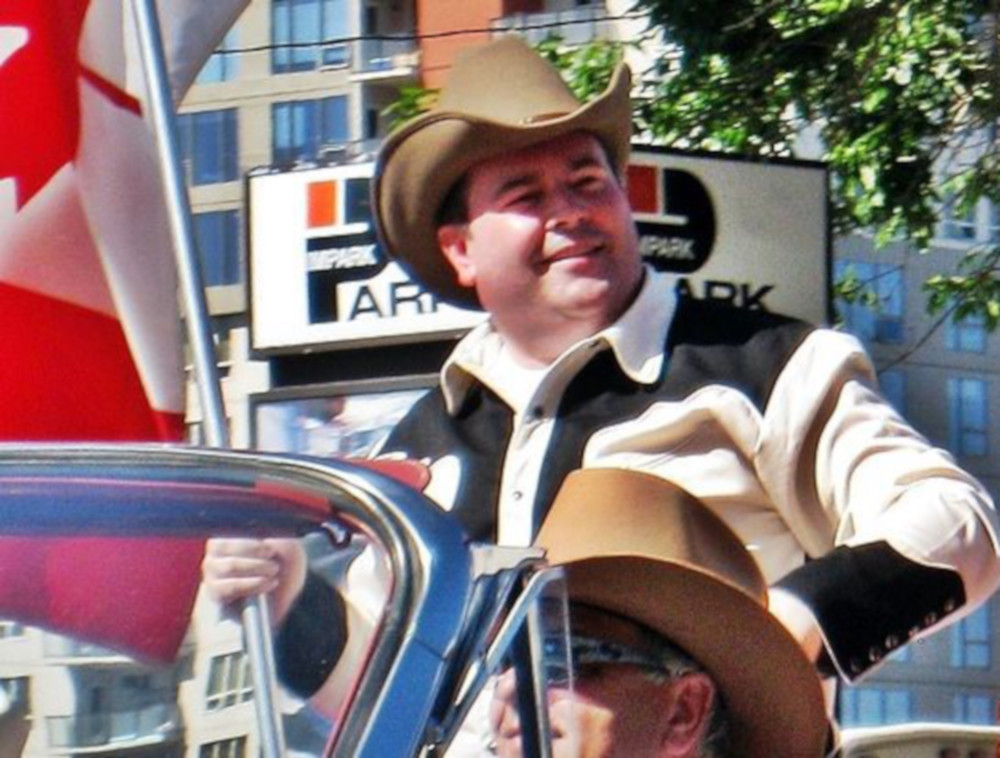It’s dog whistle politics without the whistle. Alberta’s new UCP government doesn’t have to come out and admit it’s much less committed to Indigenous issues than the former NDP government — we can hear it from the silence. We can hear it when Premier Jason Kenney and his ministers hold a news conference or deliver an announcement without first making an Indigenous land acknowledgement. Some of them might do it, but the government says it’s now a matter of “personal preference” for each minister.
This might not seem like a big deal. But compare it to Notley’s government, which started every news conference, speech and meeting by acknowledging Alberta was founded on Indigenous lands. Critics of the practice say land acknowledgements are purely symbolic. Yes, but symbols are important. Land acknowledgements by politicians, rare before 2015, became common after the Truth and Reconciliation Commission, delving deeply into Canada’s dark history of residential schools, issued its report with 94 “calls to action” to improve the lives of Indigenous peoples.
Just a month after becoming premier, Notley apologized to Indigenous peoples on behalf of the province for decades of abuse in residential schools. Weeks later she issued a public letter to her cabinet on the importance of “renewing and improving our relationship with Indigenous peoples.” She pointed to the UN Declaration on the Rights of Indigenous Peoples, which deals with rights to language, equality, land and control of one’s own life.
Notley was doing the right thing morally but also politically. Canada’s courts have upheld the duty of governments to consult with First Nations when potentially encroaching on Treaty rights. The Trans Mountain pipeline expansion, for example, was held up for a year in part because the federal government didn’t fulfill that duty.
Notley met regularly with First Nations leaders, helped shepherd a long-awaited land deal for the Lubicon Lake Band and in 2018 issued an apology to victims of the ’60s Scoop, which had seen government take Indigenous kids from their homes and place them for adoption with non-Indigenous families. All along the way she was careful to give a land acknowledgement before beginning any public statement.
Kenney, on the other hand, has made so few land acknowledgements that when he does, it becomes news. As it did last June when Kenney met with chiefs of Alberta’s First Nations. The main issue on the agenda for Kenney was the government’s $1-billion Indigenous Opportunities Corporation, which promises to backstop loans for First Nation businesses.
Wilton Littlechild, Grand Chief of Treaty 6, seemed pleased with the meeting. “It’s not no to any development, or yes to all development,” he told reporters. “We need to seek a balance.” Encouraging First Nations economic development is laudable. But Kenney doesn’t seem to have a balance when it comes to dealing with Indigenous peoples. He is focused on those who are pro-development, pro-oil sands, pro-pipelines.
In August, he announced a $10-million Indigenous Litigation Fund to help pay the legal costs of First Nations fighting for resource development — which could end up pitting pro-development bands against anti-development bands.
That’s the fear of Manitoba senator Murray Sinclair, who was chair of the Truth and Reconciliation Commission. “It’s very typical of the way governments have approached the issue of Indigenous people in the past, and that is to foment division and to ensure that those who are on the side of whatever government policy is at issue or whatever corporate interest is at play are the ones that get the corporate money or get the government money,” said Sinclair to the CBC when he first heard of the litigation fund.
Kenney’s interest in building relations with Indigenous people seems limited to those who think like him. This worries Indigenous leaders who don’t think like him.
For Miranda Jimmy, co-founder of the Indigenous group Reconciliation in Solidarity Edmonton, that concern began election night last April. She told Star Metro Edmonton she knew immediately things were about to change: “Rachel Notley started her concession speech acknowledging Treaty 6, and Jason Kenney started his speech saying, ‘Alberta, we’re open for business.’”
But this is who Kenney is. He is a binary politician. You are either with him or against him. He signals this every time he praises his allies and attacks his enemies, even if those enemies are fellow Albertans. It’s the same kind of selective democracy we saw in action in early July when Municipal Affairs Minister Kaycee Madu met with Calgary city council. According to his spokesperson, Madu only issued invitations to councillors “who want to see pro-business, pro-growth policies brought into effect.” Mayor Naheed Nenshi was not on the invitation list.
Indigenous peoples who are not “pro-business, pro-growth” are not on Kenney’s invitation list either.
This column appears in the November issue of Alberta Views magazine and is republished with permission. ![]()
Read more: Indigenous, Politics, Media
















Tyee Commenting Guidelines
Comments that violate guidelines risk being deleted, and violations may result in a temporary or permanent user ban. Maintain the spirit of good conversation to stay in the discussion.
*Please note The Tyee is not a forum for spreading misinformation about COVID-19, denying its existence or minimizing its risk to public health.
Do:
Do not: